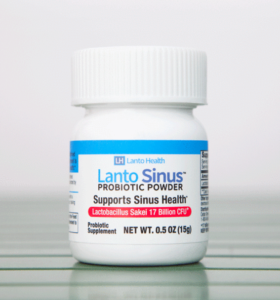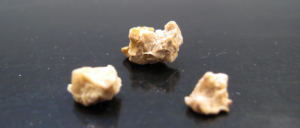 It's good to eat and drink dairy foods! Consuming dairy foods is beneficial for the gut microbiome, but each dairy food - whether milk, cheese, or yogurt - appears to have different effects on the composition of the gut microbiome (the community of bacteria, viruses, fungi).
It's good to eat and drink dairy foods! Consuming dairy foods is beneficial for the gut microbiome, but each dairy food - whether milk, cheese, or yogurt - appears to have different effects on the composition of the gut microbiome (the community of bacteria, viruses, fungi).
A recent small study found that consuming higher amounts of dairy foods is beneficial for the gut microbiome, and resulted in a greater variety of bacterial species (this is considered good for health). There was more abundance of the beneficial bacteria Bifidobacterium, a bacteria associated with digestive health and immune support.
Consumption of milk was especially beneficial in boosting a variety of beneficial bacteria (Faecalibacterium) known for their anti-inflammatory properties.
Higher amounts of total dairy foods consumed was associated with lower levels of Bacteroides, which are linked to inflammatory conditions and colorectal cancer.
Excerpts from news-medical.net: Milk boosts gut-friendly bacteria while cheese alters microbiome balance, study reveals
In a recent study published in the journal Nutrients, researchers in the United States explored the influence of dairy consumption on colonic mucosa-associated gut microbiota. By investigating specific bacterial composition changes linked to dairy intake, they highlighted its implications for individual and public health. ...continue reading "Dairy Foods Benefit Our Gut Microbes"


 A group of international researchers got together and
A group of international researchers got together and 
 There are 2 small studies that recently looked at the issue of snot transplants as a treatment for chronic sinusitis. The idea behind snot transplants or sinonasal microbiota transplants is similar to fecal transplants - it's a transplant containing the entire microbial community (fungi, bacteria, viruses) in the form of a sample of snot or nasal mucus from a healthy donor to a recipient with chronic sinusitis (sign of an unhealthy sinus microbiome).
There are 2 small studies that recently looked at the issue of snot transplants as a treatment for chronic sinusitis. The idea behind snot transplants or sinonasal microbiota transplants is similar to fecal transplants - it's a transplant containing the entire microbial community (fungi, bacteria, viruses) in the form of a sample of snot or nasal mucus from a healthy donor to a recipient with chronic sinusitis (sign of an unhealthy sinus microbiome).


 The bacteria Fusobacterium nucleatum is prevalent in periodontal disease (gum disease), but also in some chronic diseases and cancers, such as colorectal cancer. The bacteria F. nucleatum is normally found in the mouth (oral) microbiome, and its numbers increase as periodontal disease inflammation increases.
The bacteria Fusobacterium nucleatum is prevalent in periodontal disease (gum disease), but also in some chronic diseases and cancers, such as colorectal cancer. The bacteria F. nucleatum is normally found in the mouth (oral) microbiome, and its numbers increase as periodontal disease inflammation increases. The microbes living on and in us (the human microbiome or microbiota) play a big role in our health. Certain microbes are even implicated in cancer development and progression. Thus, it shouldn't come as a surprise that new
The microbes living on and in us (the human microbiome or microbiota) play a big role in our health. Certain microbes are even implicated in cancer development and progression. Thus, it shouldn't come as a surprise that new